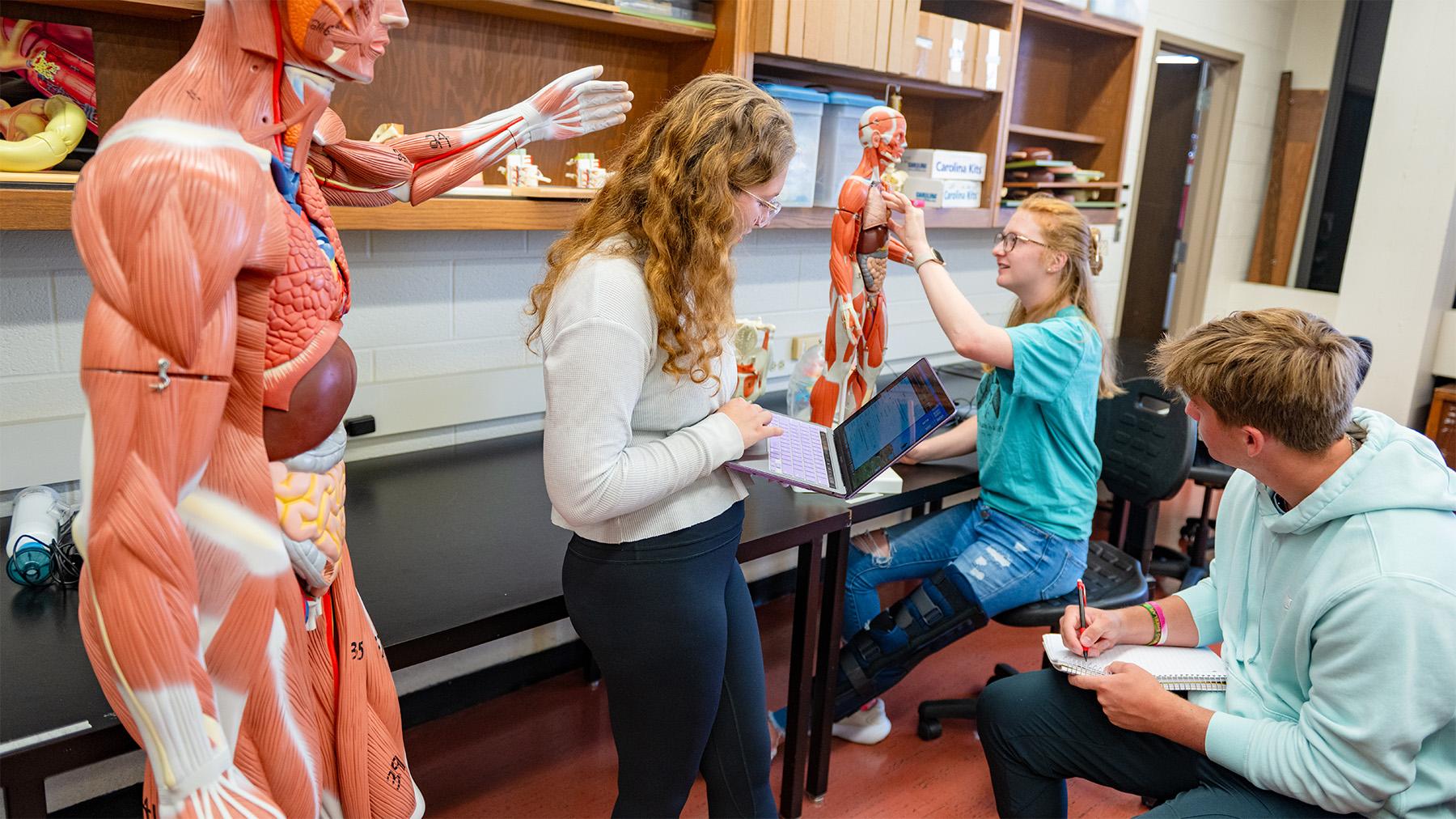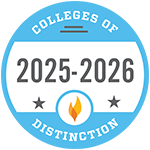Biology Education

-
Program TypeMajor
-
Degrees OfferedB.A., B.S.
-
SchoolLiffrig Family School of Education & Behavioral Sciences, School of Arts & Sciences
Prepare for a career as a secondary school teacher or for graduate study in the sciences or health-related fields.
What You’ll Learn

The biology education program will provide you skills that you can apply directly to your career in teaching biology to students or to further graduate study. You’ll gain leadership experience through a wide range of experiential learning opportunities; apply Christian, Catholic, Benedictine values to work and life; and work alongside world-class faculty with professional experience.
- Be Competitive in the Job Market
The unique focus of the program will give you a leg up in securing employment as a secondary school teacher.
- Develop Technical Proficiency in the Lab
In addition to general lab work, laboratory courses include genetics, botany, organic and inorganic chemistry, and physics.
- Strengthen Research Skills
Students search for and access sources of information, synthesize what they find, and evaluate it for relevance and reliability.
Program Information
Please visit our catalog for admission requirements and a full list of our courses.
Accreditations
-
![North Dakota Education Standards and Practices Board]()
North Dakota Education Standards and Practices Board
All the University of Mary education programs are fully accredited by the North Dakota Education Standards and Practices Board and all CAEP national standards are fully met.
Featured Faculty

Wendy Larson, PhD
Biology Education Coordinator, Assistant Professor of Biology
I enjoy teaching introductory biology lectures and labs at the University of Mary because it gives me the opportunity to guide students as they apply and expand upon what they are learning in the classroom by performing their own experiments in the laboratory. I am grateful that the University of Mary has the technology and resources needed to allow students to explore a variety of scientific topics, ask creative questions, and design their own hypothesis-driven research.

Alexander Mains, MEd
Assistant Professor of Education, Director of Secondary Education
As the director of the secondary education program, I have the opportunity to work with prospective middle school and high school educators to help them grow in their skills and develop a love of learning for their future students. I work within seven different subject areas for my program, teaching various methods courses and education courses, and visiting practicum schools where my future educators observe classroom teachers and practice teaching their lessons to real students.



